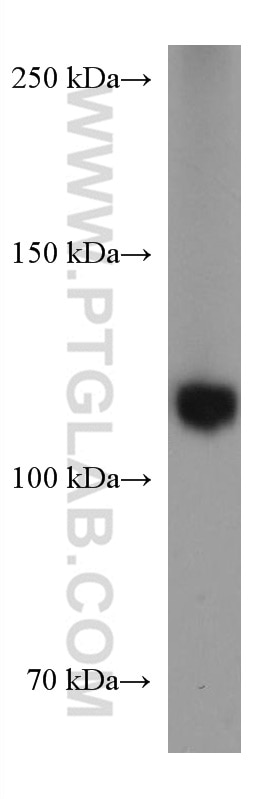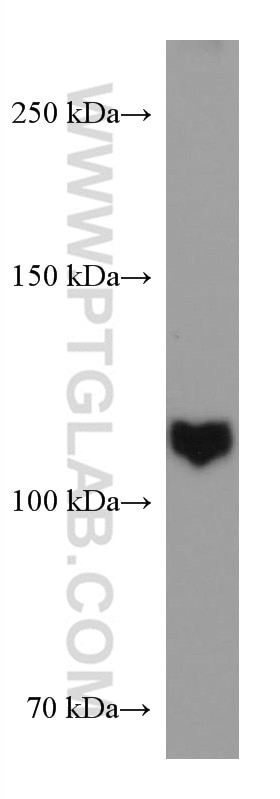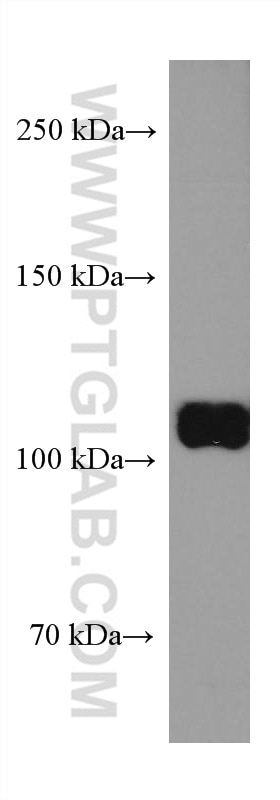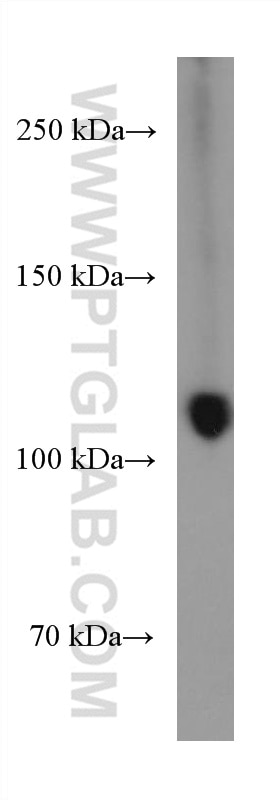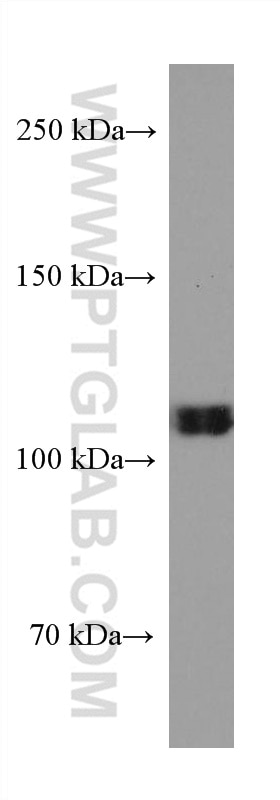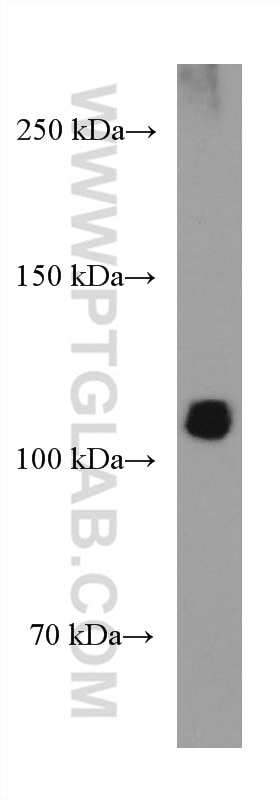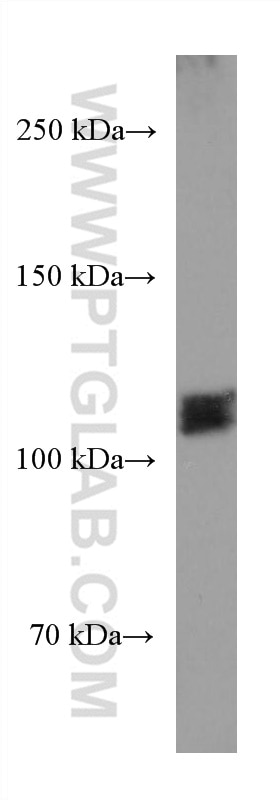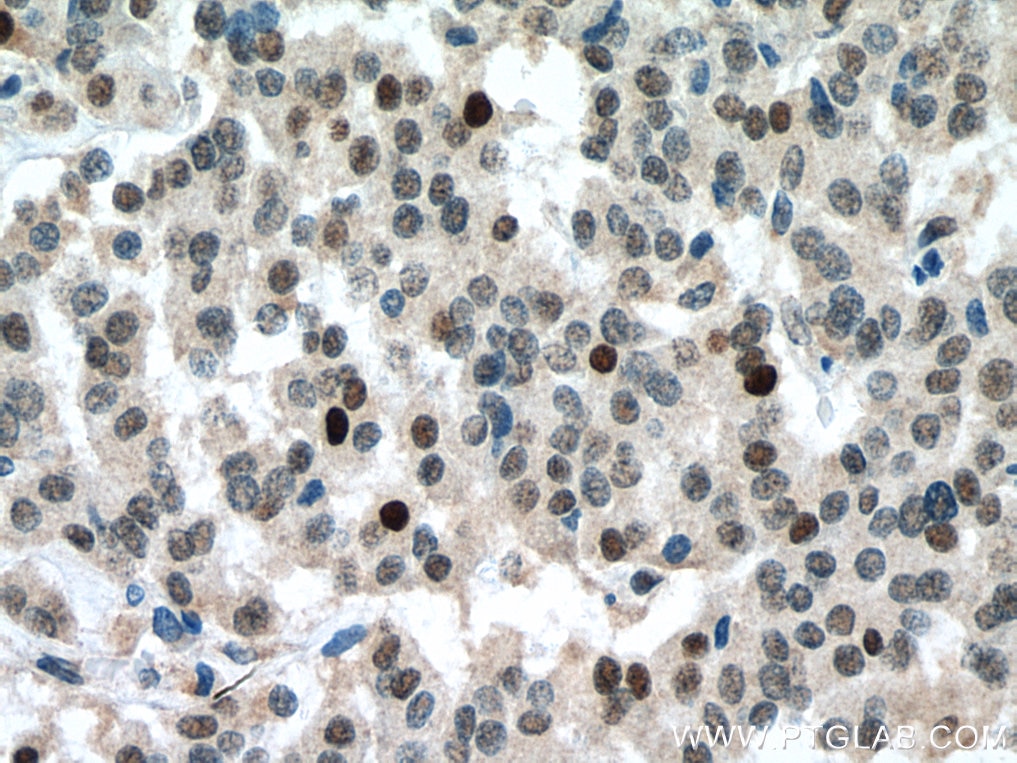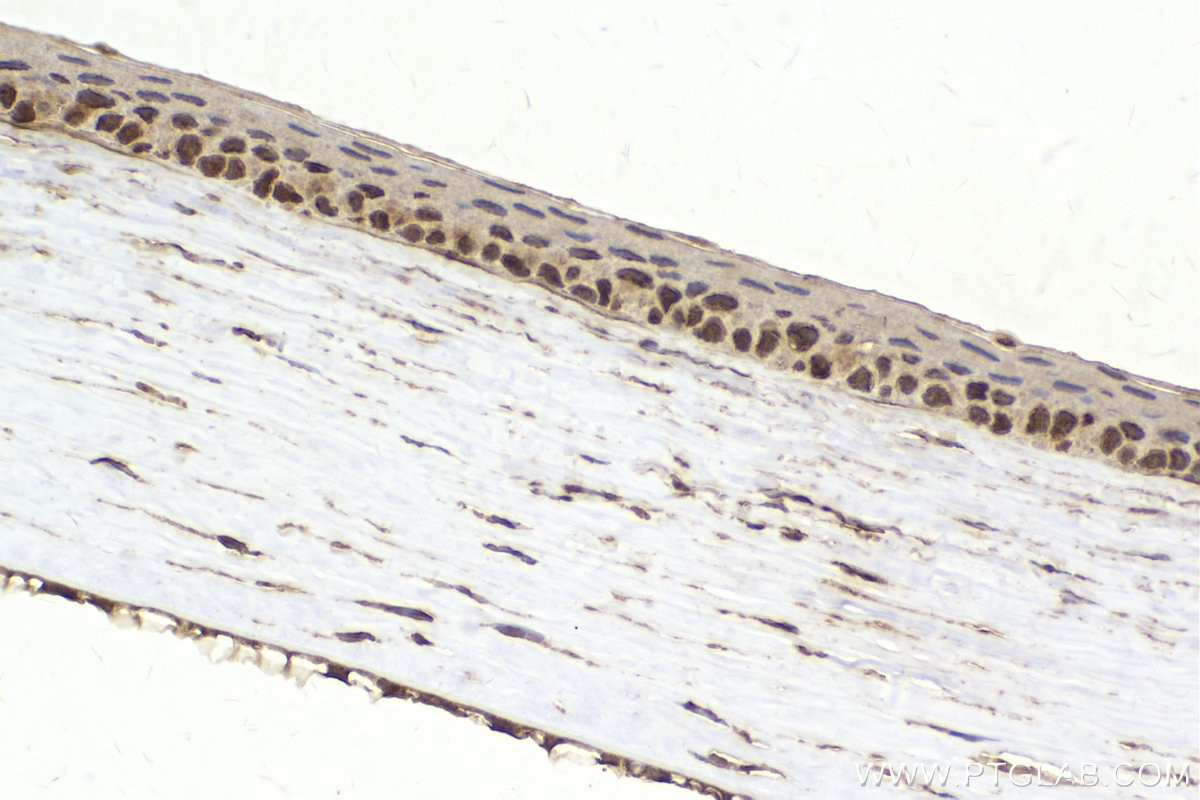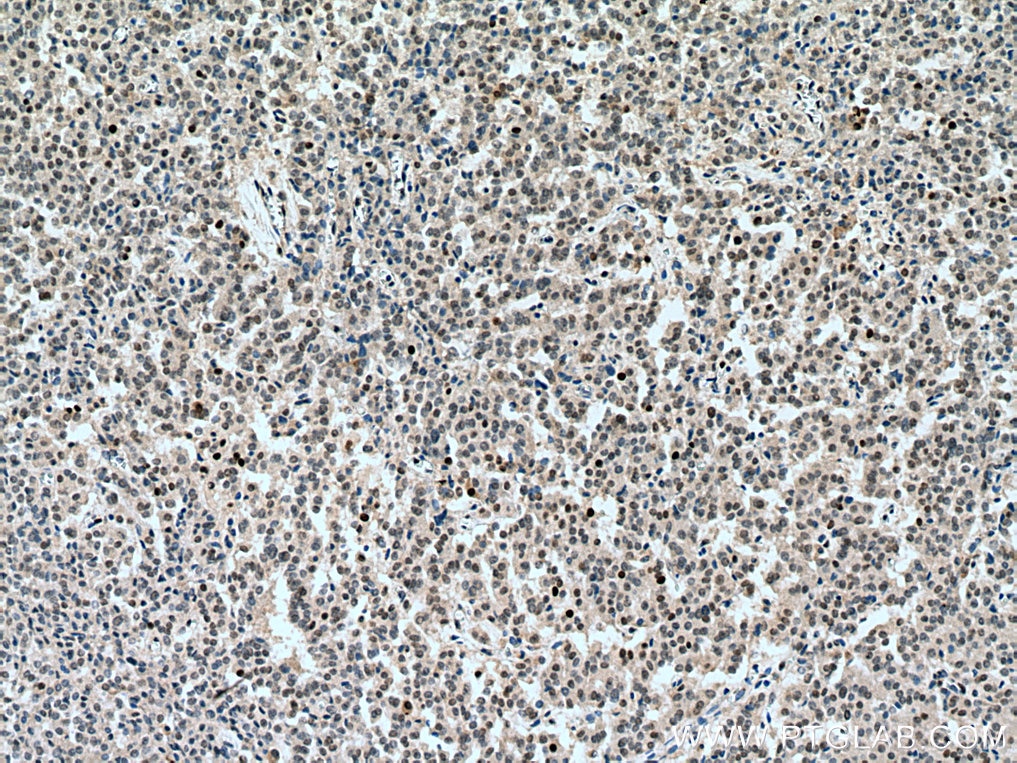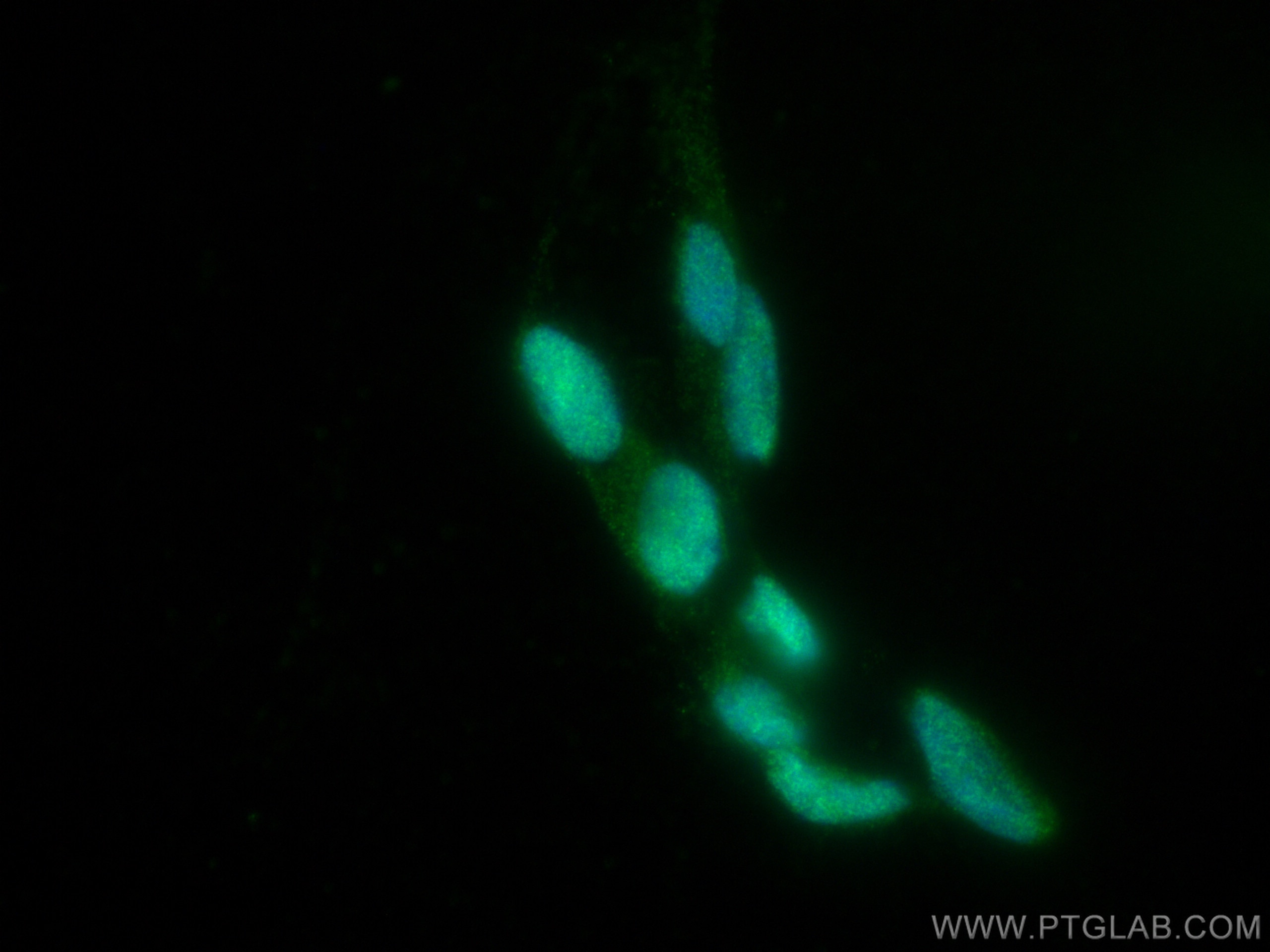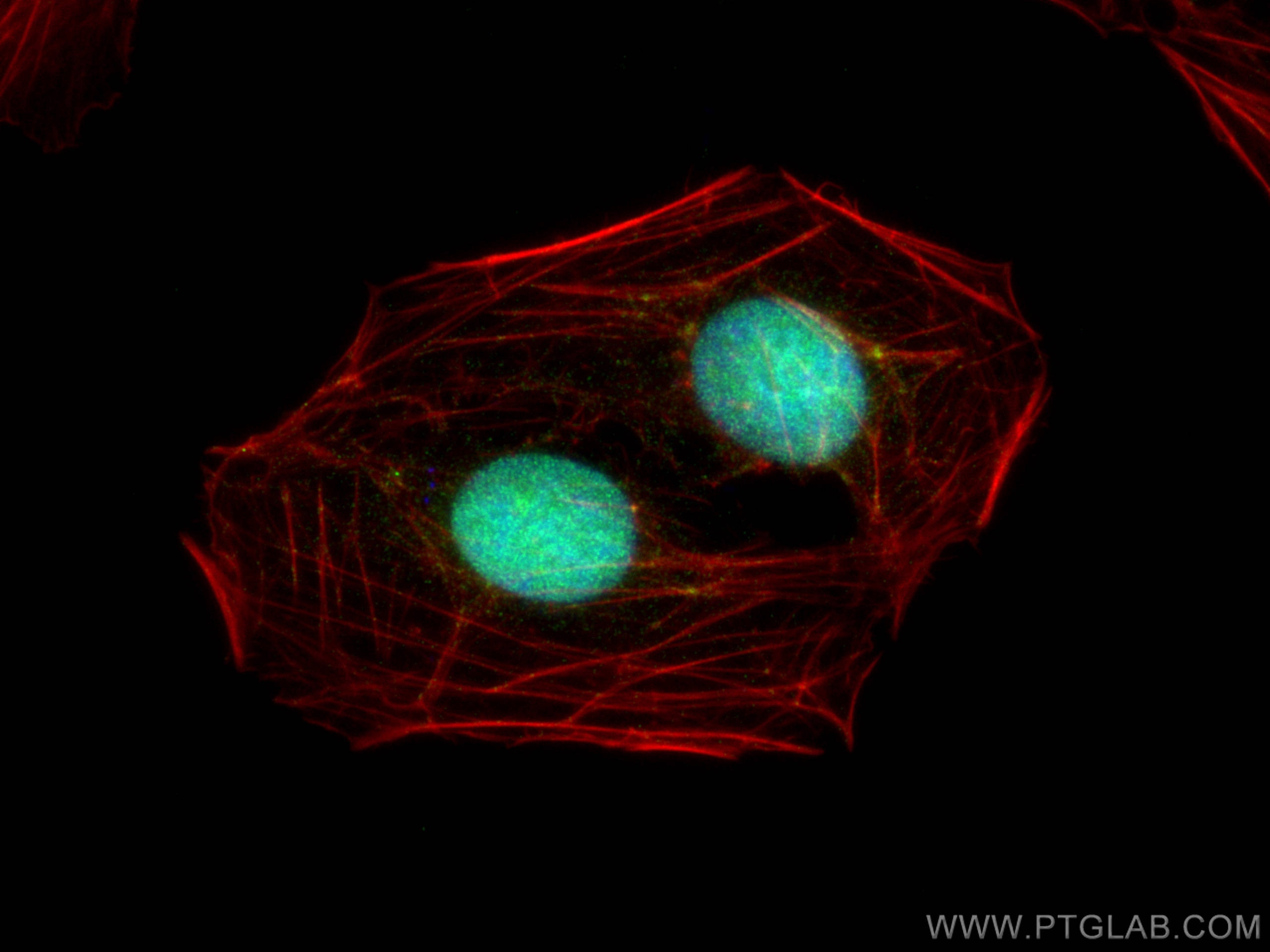Product Information
67521-1-PBS targets RB1 in WB, IHC, IF/ICC, ELISA applications and shows reactivity with human samples.
| Tested Reactivity | human |
| Host / Isotype | Mouse / IgG2a |
| Class | Monoclonal |
| Type | Antibody |
| Immunogen | RB1 fusion protein Ag22578 Predict reactive species |
| Full Name | retinoblastoma 1 |
| Calculated Molecular Weight | 928 aa, 106 kDa |
| Observed Molecular Weight | 110 kDa |
| GenBank Accession Number | BC039060 |
| Gene Symbol | RB1 |
| Gene ID (NCBI) | 5925 |
| RRID | AB_2882741 |
| Conjugate | Unconjugated |
| Form | Liquid |
| Purification Method | Protein A purification |
| UNIPROT ID | P06400 |
| Storage Buffer | PBS only, pH 7.3. |
| Storage Conditions | Store at -80°C. |
Background Information
RB1, also named as pp110, pRb and p105 Rb, belongs to the retinoblastoma protein (RB) family. It is a key regulator of entry into cell division that acts as a tumor suppressor. RB1 acts as a transcription repressor of E2F1 target genes. The underphosphorylated, active form of RB1 interacts with E2F1 and represses its transcription activity, leading to cell cycle arrest. It is directly involved in heterochromatin formation by maintaining overall chromatin structure and, in particular, that of constitutive heterochromatin by stabilizing histone methylation. It recruits and targets histone methyltransferases SUV39H1, SUV420H1 and SUV420H2, leading to epigenetic transcriptional repression. RB1 controls histone H4 'Lys-20' trimethylation and inhibits the intrinsic kinase activity of TAF1. It mediates transcriptional repression by SMARCA4/BRG1 by recruiting a histone deacetylase (HDAC) complex to the c-FOS promoter. In resting neurons, transcription of the c-FOS promoter is inhibited by BRG1-dependent recruitment of a phospho-RB1-HDAC1 repressor complex. Upon calcium influx, RB1 is dephosphorylated by calcineurin, which leads to release of the repressor complex. In case of viral infections, interactions with SV40 large T antigen, HPV E7 protein or adenovirus E1A protein induce the disassembly of RB1-E2F1 complex thereby disrupting RB1's activity.
